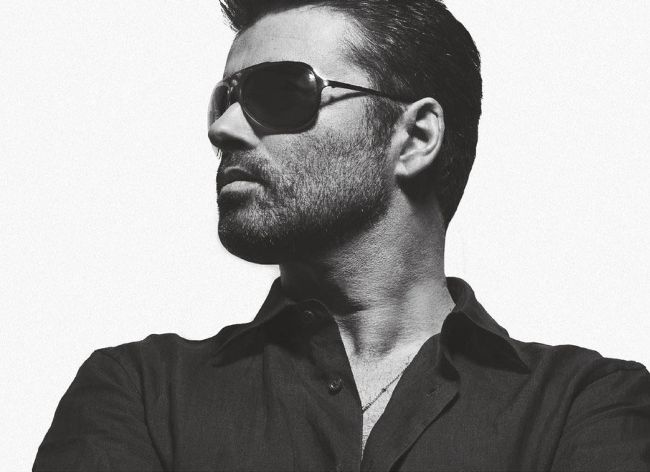CHARTING THE SONGS WE LOVE SO WELL
In 1998, a closeted George Michael found himself at the centre of a gay sex scandal that had the tabloids baying for his blood. So, he wrote a song about it and released an irreverant video, and in doing so redeined himself as a queer radical in the pop world. No wonder ‘Outside’ is his ultimate gay anthem.
Words by Conor Behan.

Feature: Music George Michael – Gay Icon – Outside
No star is immune to scandal, but few have the smarts to use a fall from grace as an opportunity to redefine themselves. In 1998 George Michael did just that.
In April of that year Michael made headlines worldwide when he was arrested for being caught in a “lewd act” in a public bathroom in Beverly Hills. According to a police press conference, an undercover police office “went into the restroom area and did observe Michael engaged in a lewd act. He was by himself. The officer observed the act and arrested Michael.”
Michael, although a huge star, had dodged rumours about his sexuality for his whole career, both during his time as part of pop duo Wham! and when his own solo career took off.
A few days after the arrest Michael took back the story from sneering tabloid headlines and admitted in an interview with CNN that was he in a relationship with a man.
“I want people to know that I have not been exposed as a gay man in any way,” he said, adding “I don’t feel any shame. I feel stupid and I feel reckless and weak for having allowed myself, my sexuality be exposed this way, but I don’t feel any shame whatsoever and neither do I think I should.”
It was a bold statement. Michael was unwilling to be cowed by what he would describe as entrapment by the LA police and an obvious attempt at pearl-clutching shock from the British tabloid press.
Behind the scenes, Michael had endured enormous personal upheaval. His first serious relationship with a man was with Brazilian designer Anselmo Feleppa, who passed away from an Aids-related brain haemorrhage in 1993. Michael would dedicate both single hit ‘Jesus to a Child’ and the 1996 Older album to Feleppa, although he didn’t disclose the true nature of their relationship. In 1997 Michael’s mother died and though Michael was now in a relationship with Kenny Goss, he was still by his own admission acting out because of grief.
He told NBC News in 2004 he had been “feeling selfdestructive, I’d been through a very hard time for various reasons for several reasons. I think it was a very twisted way of getting rid of what was as far as I was concerned the last remaining secret in my life, which was the secret with the public.”
In a move that was a trademark of his career, Michael decided to use music and music videos to explain himself to his public. Six months after the blaze of media attention he dropped the disco-pop track ‘Outside’, a song laced with rebuttals of the supposed shame he was expected to feel about his sexuality.
“I’d service the community but I already have, you see,” he croons at one point, gleefully referencing his punishment for his misdemeanour, while the track’s opening line, “I think I’m done with the sofa, I think I’m done with the hall,” set up what ‘Outside’ is all about: a cheeky celebration of al fresco sexual activity.
While the song certainly went there, the accompanying video was the real two-fingers to respectability that seemed to suit a newly-liberated Michael. Opening with a porno spoof of public sex interrupted by a police officer, the clip then intercuts footage of various couples, with various sexual proclivities, being observed by CCTV, helicopters and, of course, the police.
“I feel reckless and weak for having allowed myself, my sexuality be exposed this way, but I don’t feel any shame whatsoever.
Michael appears dressed as a policeman, gyrating with scantily clad women also in police uniforms who twirl and perform in a toilet that’s been turned into a disco. If it sounds over the top then it’s because it is. It’s also a brazen move that still feels boldly transgressive today. In its short run-time the video depicts queer sexuality with an unapologetic flair. It’s also in line with iconography beloved by the community: the queering of the police uniform seen in everything from S&M culture to the Village People, while the track itself is a straight-up disco record, echoing the soundtrack of gay liberation in the ’70s.
The song would go on to be a big hit across Europe and usher in an era where far from hiding, George Michael was forthright and unapologetic about his sexuality. As such, he was a queer radical the pop world has not seen since.
Though there would be other tabloid scandals. Michael was photographed cruising in Hampstead Heath, but he remained unapologetic about his choices, frankly telling the Guardian in 2009 about his cruising habits: “It’s a much nicer place to get some quick and honest sex than standing in a bar.”
When news of Michael’s death at the age of 53 emerged on Christmas Day 2016, tributes remembered his back catalogue, his heartthrob status and even charitable efforts he had kept out of the media. And among his achievements, Michael’s frank exploration of his sexuality and his willingness to resist shame felt revolutionary and much needed. In an era where out artists like Troye Sivan and Sam Smith can flourish in the mainstream, George Michael’s unapologetic outlook feels as vital as ever.